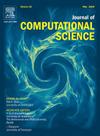Learnability of state spaces of physical systems is undecidable
IF 3.1
3区 计算机科学
Q2 COMPUTER SCIENCE, INTERDISCIPLINARY APPLICATIONS
引用次数: 0
Abstract
Despite an increasing role of machine learning in science, there is a lack of results on limits of empirical exploration aided by machine learning. In this paper, we construct one such limit by proving undecidability of learnability of state spaces of physical systems. We characterize state spaces as binary hypothesis classes of the computable Probably Approximately Correct learning framework. This leads to identifying the first limit for learnability of state spaces in the agnostic setting. Further, using the fact that finiteness of the combinatorial dimension of hypothesis classes is undecidable, we derive undecidability for learnability of state spaces as well. Throughout the paper, we try to connect our formal results with modern neural networks. This allows us to bring the limits close to the current practice and make a first step in connecting scientific exploration aided by machine learning with results from learning theory.
物理系统状态空间的可学性是不可判定的
尽管机器学习在科学领域发挥着越来越重要的作用,但在机器学习辅助下的经验探索的极限方面却缺乏成果。在本文中,我们通过证明物理系统状态空间可学性的不可判定性,构建了这样一个极限。我们将状态空间表征为可计算的二元假设类 大概正确学习框架。由此,我们确定了不可知论环境中状态空间可学性的第一个极限。此外,利用假设类组合维度的有限性是不可判定的这一事实,我们还推导出了状态空间可学性的不可判定性。在整篇论文中,我们试图将我们的正式结果与现代神经网络联系起来。这使我们能够将极限与当前的实践相接近,并在将机器学习辅助的科学探索与学习理论的结果相联系方面迈出了第一步。
本文章由计算机程序翻译,如有差异,请以英文原文为准。
求助全文
约1分钟内获得全文
求助全文
来源期刊

Journal of Computational Science
COMPUTER SCIENCE, INTERDISCIPLINARY APPLICATIONS-COMPUTER SCIENCE, THEORY & METHODS
CiteScore
5.50
自引率
3.00%
发文量
227
审稿时长
41 days
期刊介绍:
Computational Science is a rapidly growing multi- and interdisciplinary field that uses advanced computing and data analysis to understand and solve complex problems. It has reached a level of predictive capability that now firmly complements the traditional pillars of experimentation and theory.
The recent advances in experimental techniques such as detectors, on-line sensor networks and high-resolution imaging techniques, have opened up new windows into physical and biological processes at many levels of detail. The resulting data explosion allows for detailed data driven modeling and simulation.
This new discipline in science combines computational thinking, modern computational methods, devices and collateral technologies to address problems far beyond the scope of traditional numerical methods.
Computational science typically unifies three distinct elements:
• Modeling, Algorithms and Simulations (e.g. numerical and non-numerical, discrete and continuous);
• Software developed to solve science (e.g., biological, physical, and social), engineering, medicine, and humanities problems;
• Computer and information science that develops and optimizes the advanced system hardware, software, networking, and data management components (e.g. problem solving environments).
 求助内容:
求助内容: 应助结果提醒方式:
应助结果提醒方式:


